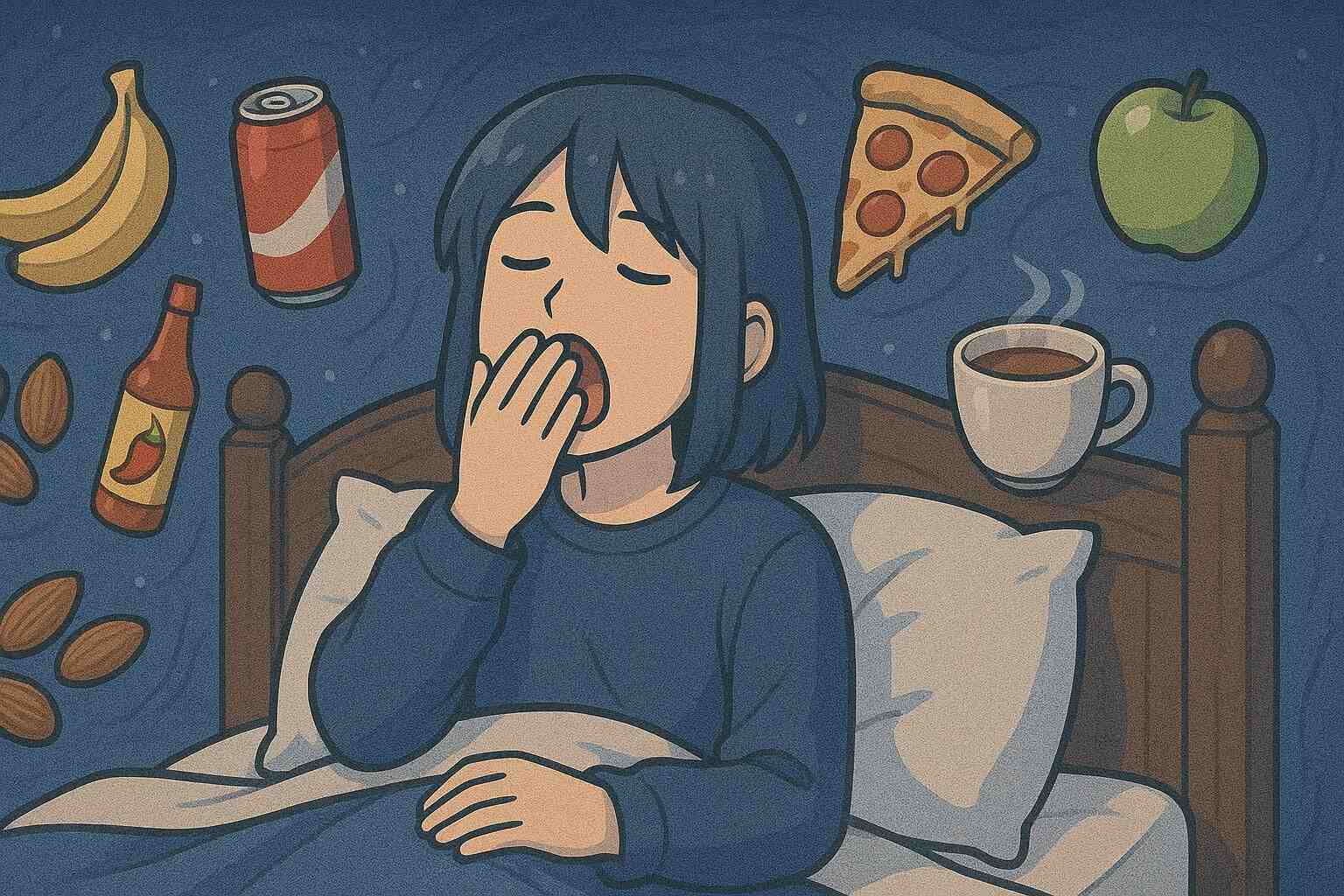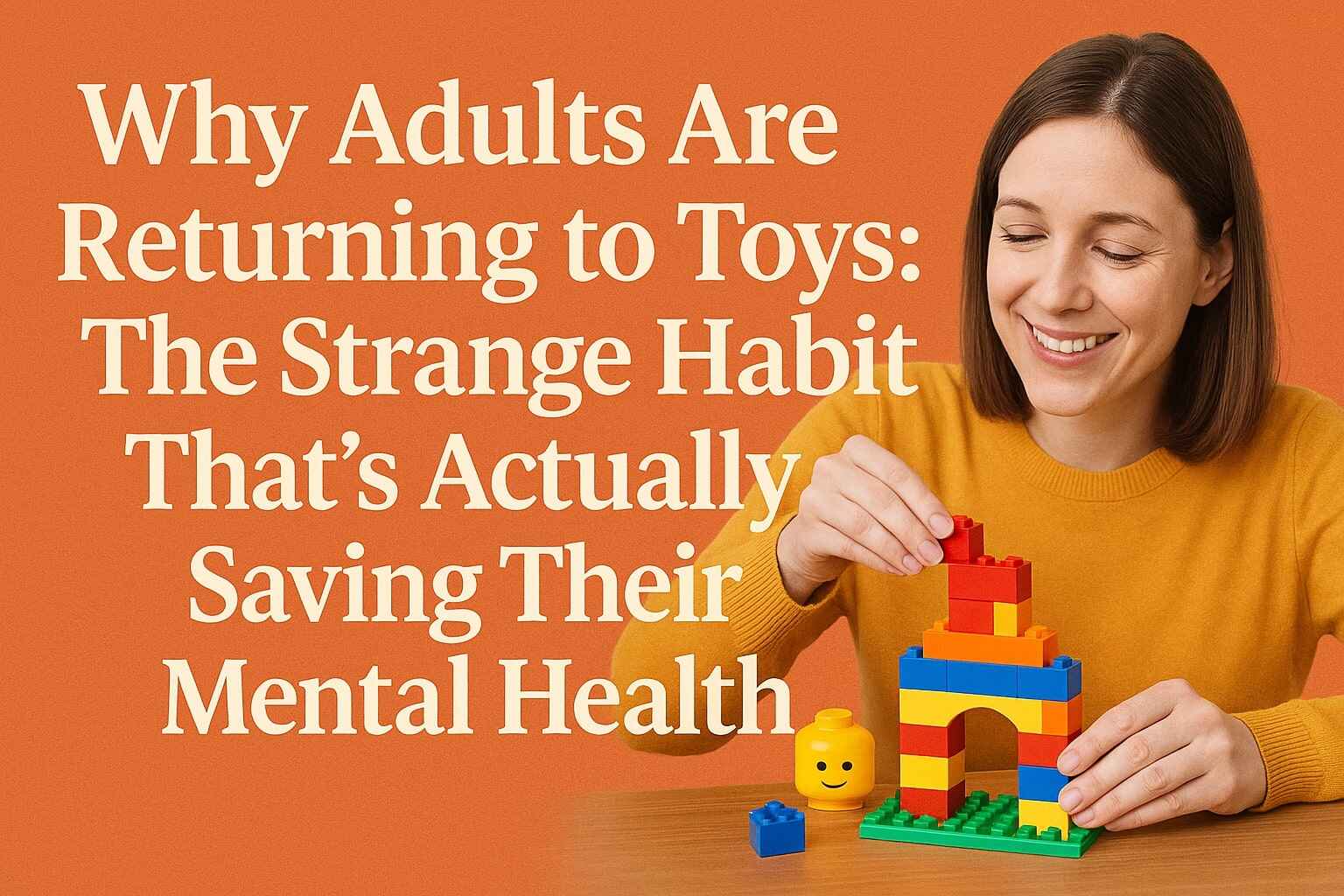You’ve dimmed the lights.
You’ve put away the phone.
You’ve even tried breathing exercises…
But you’re still lying there—wide awake at 2 a.m.
Before blaming your stress or screen time, take a look at your plate.
Because what you eat before bed could be the silent culprit keeping you up…
Or the secret weapon that finally gets you sleeping deep.
How Food Impacts Your Sleep Chemistry
When you eat, you’re not just feeding your body—you’re feeding your brain.
And certain foods interact with hormones like:
-
Melatonin – the “sleep hormone”
-
Serotonin – the “feel good” neurotransmitter that helps relax you
-
Cortisol – the stress hormone that spikes alertness
-
Insulin – the blood sugar regulator that affects sleep cycles
Your food choices either support your body’s natural sleep rhythm…
Or completely throw it off.
🛑 Foods That Sabotage Your Sleep
Let’s start with the bad guys.
1. Caffeine (Even the Hidden Kind)
Obvious, right? But caffeine lurks in more than just coffee.
-
Tea (yes, even green tea)
-
Chocolate
-
Soda
-
Protein bars
-
“Energy” waters
It blocks adenosine—the chemical that tells your brain it’s sleepy time.
☕ Avoid after 2 p.m. if you’re sensitive.
2. High-Sugar Snacks
That donut might give you a dopamine hit,
but it also spikes your blood sugar—and then crashes it.
Cue:
-
Nighttime wakeups
-
Restless tossing
-
Vivid, anxious dreams
3. Spicy Foods
Spicy curries, sauces, or jalapeños raise your body temperature.
And guess what your body needs to fall asleep?
A slight drop in core temperature.
They also trigger acid reflux, which hits hardest when you lie down.
4. Heavy Fatty Meals
Burgers, pizza, deep-fried food…
These slow digestion, keeping your body busy all night when it should be resting.
🧠 “Your diet is a bank account. Good food choices are good investments.”
— Bethenny Frankel
✅ Foods That Support Your Sleep
Now, the real heroes—the foods that actually help you drift off naturally.
1. Bananas
Rich in:
-
Magnesium (relaxes muscles)
-
Potassium (regulates nerves)
-
Tryptophan (helps make serotonin and melatonin)
2. Almonds
Just a handful offers:
-
Magnesium
-
Protein (to keep blood sugar steady overnight)
They also help calm the nervous system.
3. Chamomile Tea
Technically not a “food,” but it’s packed with apigenin,
a compound that binds to brain receptors and promotes sleepiness.
Plus, it’s naturally caffeine-free.
4. Kiwi
Strangely underrated, but studies show eating 2 kiwis an hour before bed improves:
-
Sleep onset
-
Duration
-
Efficiency
It’s loaded with antioxidants and serotonin precursors.
5. Oats (Plain, Not Sugary)
Yes, oats!
They naturally raise melatonin and calm the nervous system.
Top with almonds and bananas? Now you’re talking.
Final Sleep Tip: Timing Matters
Even good sleep foods can backfire if you eat them too late.
⏰ Stop heavy meals 2-3 hours before bed.
If you need a bedtime snack, keep it light and balanced.
Sleep Smarter, Not Just Longer
Sleep isn’t just about bedtime.
It starts at the dinner table.
So the next time you’re staring at the ceiling wondering why you’re still awake…
Check your plate—not just your pillow.
Fuel your sleep like you fuel your day.
Your dreams depend on it.






